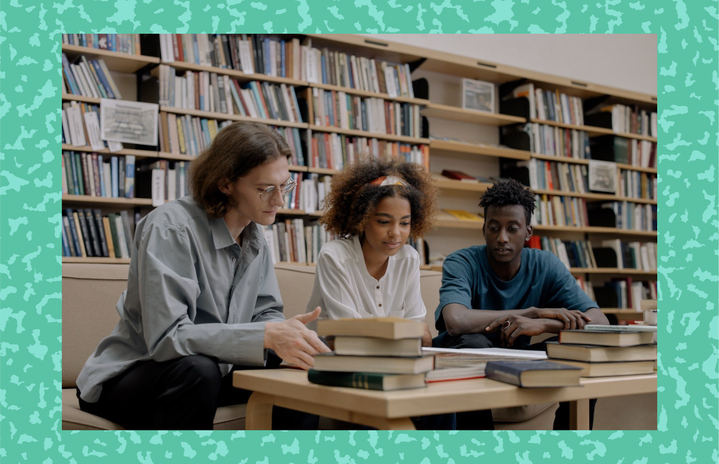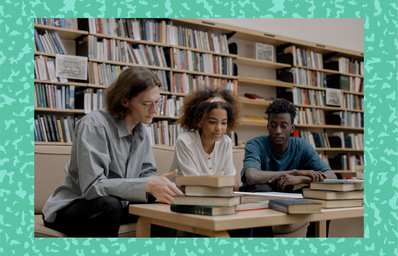Stephanie Smith is a passionate advocate for reading. Ever since she was a little girl, she was bonding with her siblings about books and running to the library down the road in her free time.
With little technology like phones in her childhood, it was normal for her family to bond over literature that they adored regularly.
Now, Stephanie has helped run the “Renegade Readers” read-in at Kent State University for the last two years, so that other students can feel as passionate about reading as she is.
“They read a beloved book that has somewhere been challenged or banned,” Smith said. “They stand up and say why it mattered to them. It is very fun and joyful.”
Smith deeply believes that “no book should be banned”, since it is “our first amendment right and we live in a free society.” Therefore, students should be able to choose for themselves what they want to read.
Although, a huge problem is reading interest has started to have a steady decrease, due to the continued rise of social media.
“We are tending more towards social media,” she said. “Most of us are stunned when we actually track how long we spend scrolling through social media and thus we sacrifice reading time.”
But, reading has a lot of positive qualities. Studies across the Internet have shown it allows the consumer to grow in possibilities, represent how others live their daily lives, establish empathy, create imagination, make lifelong innovators, increase critical thinking, increase mental memory and so much more.
Although, what Stephanie believes is most important, is having books be culturally accessible for all children to read.
When she lived in Washington, D.C., she helped run a Harry Potter book launch that allowed for Black and Hispanic children to make it to the event, even if they struggled to gain transportation or money to buy their own book.
“The minute they walked in there, they didn’t even know that they were going to get a book, let alone what the book was,” she said. “Even if it was not in their cultural frame of reference, they were all jumping up and down in excitement. Everyone was given a book. It was one of the most emotionally thrilling moments of my life, because most of these kids never had a book of their own.”
By connecting these children with books, it made it more accessible for students to take on reading and enjoy it significantly more.
For people who are struggling to start reading and do not know where to start, Stephanie encourages you to think, “who do you love?” From there, you can look at what they like to read, hobbies you enjoy or books from a specific show or film you love to spark further interest.
“With consumer data like shows, films and social media, we see that young people not only have the capacity to sit still while a story unfolds, they are beginning to actually understand a great story and they will wait for the next addition for a story,” she said.
Smith speaks upon this with passion, because this information proves that if young children and students can put in the time and excitement for new releases of a story, there is still hope for reading.





